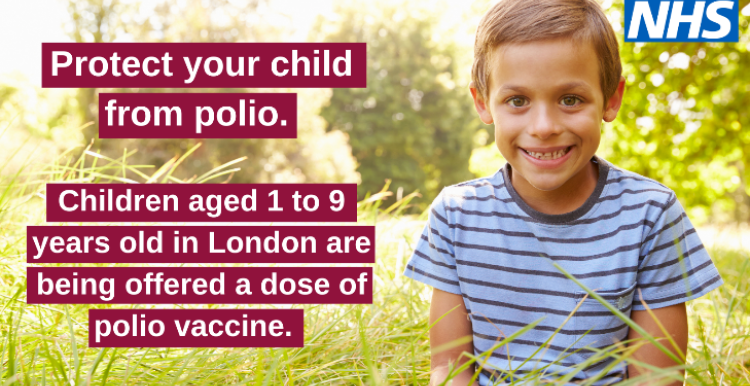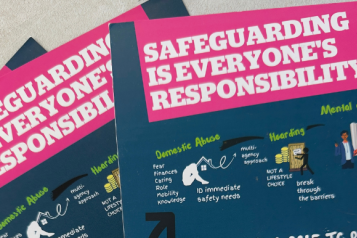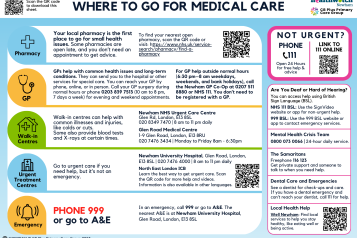Polio Booster Campaign

What is Polio?
Poliomyelitis (polio) is an infectious disease caused by a virus that attacks the nervous system, that can potentially lead to permanent paralysis.
Children under the age of 5 years old are at high risk but any person can contact polio if they are unvaccinated.
Since February 2022 traces of type 2 poliovirus have been detected in sewage samples in North and East London. The government has announced a vaccine roll out for children 1 to 9 years old in London within the next 6 weeks.
Key messages
- Children aged 1 to 9 years old in London are being offered a dose of polio vaccine.
- For some children this may be an extra dose on top of their routine vaccinations. In other children it may bring them up to date with their routine vaccinations.
- There are signs the virus may be spreading in London and the number of children vaccinated in London is lower than it should be. Boosting immunity in children should help protect them and reduce the risk of the virus continuing to spread.
- If your child is eligible for an extra dose, the NHS will contact you to ask you to book an appointment for the vaccine.
How can it spread?
Polio is very contagious and can spread easily by person-to-person or living in unsanitary conditions exposed to polio.
Through person to person:
- Touching or inhaling feces (poo) of an infected person
- Physical contact with an infected person who did not wash their hands properly
- Inhaling droplets of a sneeze or cough of an infected person
Through item to person:
- Consuming food or water contaminated with polio
- Touching items contaminated with polio
Symptoms
The symptoms of the virus can appear up to 2 weeks after a person gets infected.
Beginning signs of the illness:
- fever
- headache
- tiredness
- sore throat
- muscle aches
- stiff neck
- tummy (abdominal) pain
- vomiting
- feeling and being sick
There is a likelihood that polio infection can cause paralysis of the body, which can develop over hours or days. The paralysis of the muscle is life threatening as it can cause breathing difficulties, risking the death of asphyxiation (body deprived of oxygen).
Call 999 or go to A&E
If your child experience the following symptoms:
- difficulty breathing
- numbness of limbs (lack of feeling)
- weakness of limbs (flaccid or floppy)
- stiffness of body (difficulty moving)
Vaccination to protect against polio
Children aged 1 to 9 years old in London are being offered a dose of polio vaccine. For some children this may be an extra dose on top of their routine vaccinations. In other children it may bring them up to date with their routine vaccinations.
The vaccine you are offered will be the right one for the age of your child:
Children age 1 to less than 3 years and 4 months
- 3 doses of polio vaccine
- single polio booster vaccine (Infanrix hexa or Vaxelis). At least 4 weeks after their last dose.
Children age 3 years 4 months to 9 years
- 4 doses of polio vaccine
- single polio booster vaccine (Boostrix-IPV or Revaxis) unless they had received their pre-school booster in the past 12 months.
The NHS will contact you to ask you to book an appointment for your child’s polio vaccine.
Those who cannot have the vaccine:
If your child had a serious allergic reaction to a previous vaccination or to certain uncommon antibiotics (neomycin, polymyxin or streptomycin) you may want to check with your doctor.
Further information and guidance about polio
For more information about polio or find the support you need, you can do so by accessing the resources below:
Newham Public Health
https://www.newham.gov.uk/health-adult-social-care/polio-virus
NHS
https://www.nhs.uk/conditions/polio/
UK Government
https://www.healthpublications.gov.uk/ArticleOverview.html?sp=Sall
World Health Organisation (WHO)
https://www.who.int/news-room/fact-sheets/detail/poliomyelitis


